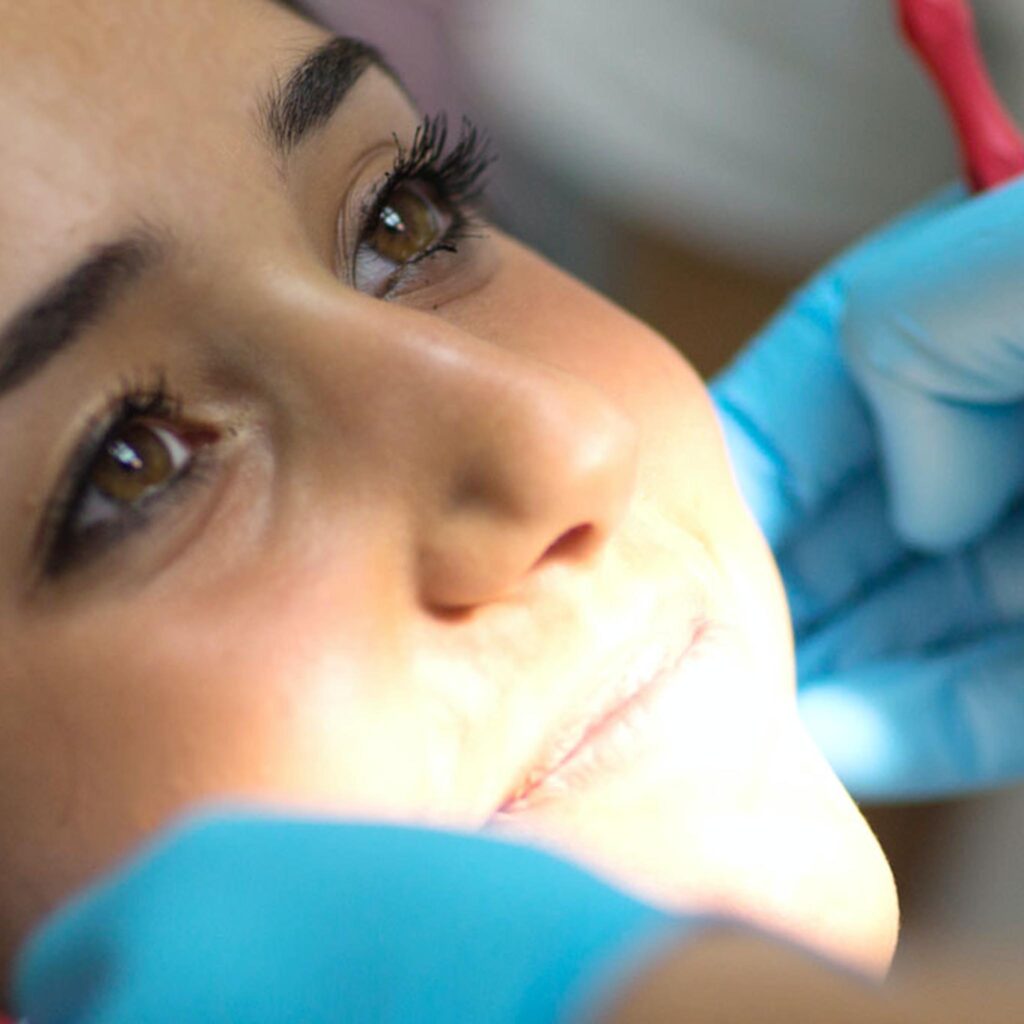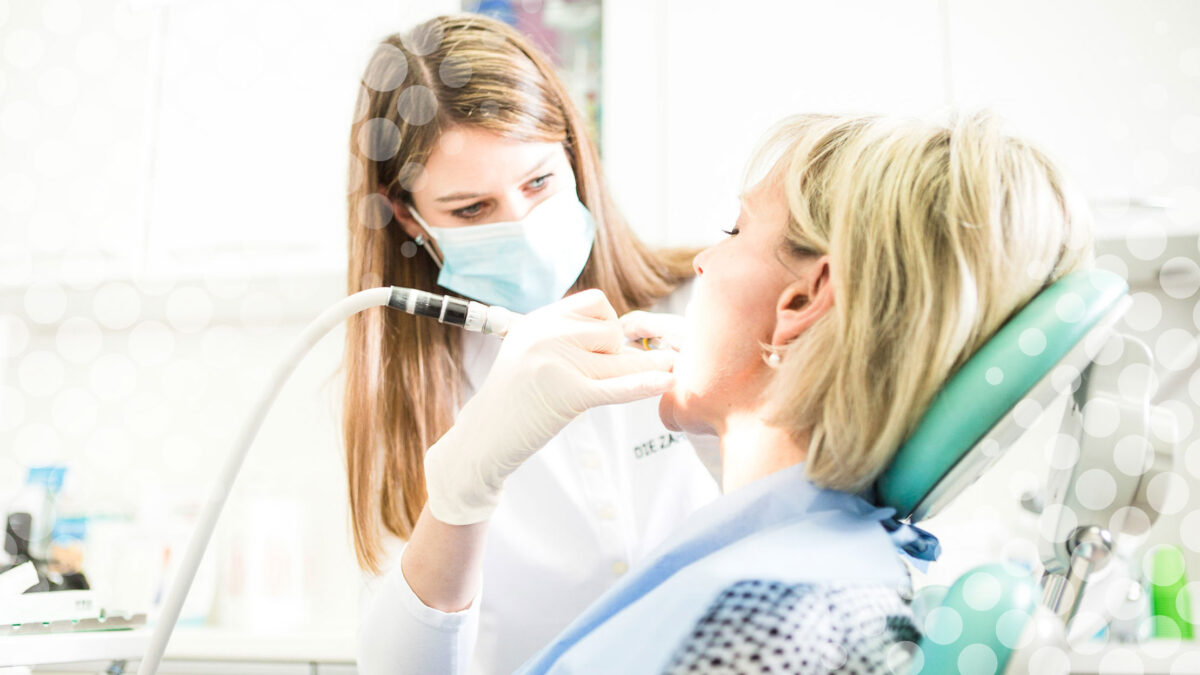Prophylaxis means prevention
Keeping your own teeth and dentures healthy and beautiful in the long term requires personal care as well as professional prophylaxis and hygiene measures.
Our specialized team will take care of you and help you achieve the best possible result.
Prophylaxis means «prevention» of diseases of the teeth (e.g. tooth decay) and of the tooth support system (gums and bones).
It is individually coordinated with you and usually includes the following program:
- Control of the oral hygiene and dental situation
- Recognize and identify risks and diseases
- Professional tooth cleaning
- Motivation and instruction for the appropriate, individually required oral hygiene
- Advice / recommendation on suitable oral hygiene aids and products
- Nutritional guidance
- Fluoridation and protective varnish
Dental hygiene
A radiant smile and healthy teeth are very important for our wellbeing. That’s why we recommend to visit our dental hygienists / prophylaxis assistants.
You will be supported and instructed by our specialist staff in order to achieve ideal oral hygiene.
Professional tooth cleaning includes removing tartar above and below the gums and polishing, which removes discoloration from the teeth.
In order to make this regularity easier for you, we offer you our call-up system after the end of the treatment, by which you will be reminded to clean your teeth in writing, by telephone, by e-mail or SMS.
Depending on requirements, appointments are made quarterly, half-yearly or annually.
Why is correct oral hygiene so important?
Proper oral hygiene is not only important in keeping teeth and gums healthy, but it also plays an important role in the health of a number of other organs in our body. The oral cavity and teeth are entry points for many germs in our body.
For example, good oral hygiene can reduce the risk of developing cardiovascular disease, high blood pressure or diabetes. In addition, the risk of premature birth can be reduced during pregnancy.

How does diet affect my teeth?
Most of the food and drinks that we eat every day contain sugar and acid, which damage the enamel.
It is therefore advisable to brush your teeth regularly and correctly and, if necessary, to use an enamel-hardening toothpaste and mouthwash solution.
Foods that are gentle on the teeth, such as: B. vegetables, rice, cereals, meat, fish, eggs, cheese, quark and natural yogurt. These contain little acid and sugar, which attack the tooth enamel. In addition, they contain a high proportion of vitamins and minerals that are even beneficial to dental health.
Dental check-up
The dental hygiene treatment should take place at regular intervals and is determined individually. A dental check-up should be carried out annually, but no later than every two years. Small overview x-rays are also created there in order to identify caries formation at an early stage.
What do we do to save your teeth in case of illness?
Even with various clinical pictures, our top priority is to keep your teeth if possible.
If tooth decay is so advanced that treatment is necessary, the tooth decay is removed and the tooth is restored to its natural shape with a composite (tooth-colored material) filling .
If the nerve in a tooth is inflamed or even dead, the inflamed tissue is removed, the tooth is cleaned from the inside and filled with a special material. You can find more information about root canal treatment on our special leaflet (create link to pdf).
Inflammation of the gums (periodontitis) can also endanger your teeth. This is usually noticeable through increased bleeding of the gums and teeth can easily be displaced or begin to wobble. If this disease is discovered at an early stage, appropriate measures can also be taken here so that your teeth remain intact.
